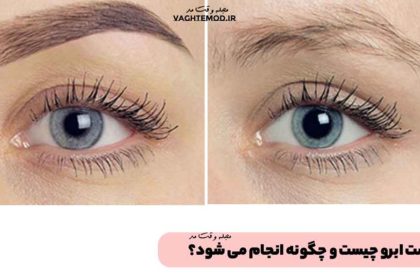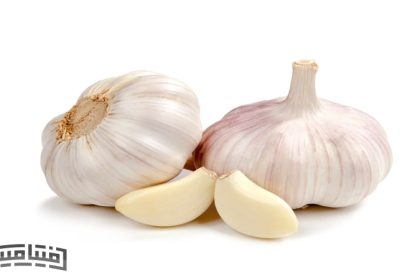What is retinol and how did it catch your attention as a powerful ingredient with amazing skin care benefits?
Scientific studies have proven the power of creams and serums containing retinol in the treatment of some skin problems such as hormonal acne, dry skin and pigmentation and brown spots, so it is not surprising that retinol is at the top of the best skin care ingredients in the beauty world.
Are you ready to hear the important facts about retinol and its rejuvenating and rejuvenating effect for Skin you are Read this article.
What is retinol and what does it do?
Retinol is one of the derivatives of vitamin A. It is basically a natural chemical compound found in certain types of animal foods and some plant sources. It is a member of the large retinoid family. Prescription retinoids have been available since the 1970s and are found in acne medications including Retin-A and Accutane. Retinol is a milder and milder retinoid, which is why it is available over the counter.
When retinol comes into contact with the skin, it automatically turns into retinoic acid, the active form of vitamin A, which has miraculous properties for the skin.
Retinol is found in animal sources such as beef, chicken liver, eggs, and fish, but it is also found in many plants and vegetables such as cantaloupe, carrots, squash, and more.
To learn more about vitamin A, we recommend the article: Properties and side effects of vitamin A for facial skin and how to use it read the

The body cannot produce this vitamin on its own, so retinol must be obtained through diet or topical skin care. For this reason and due to the benefits of retinol for the skin, it is commonly used in many skin care products and creams.
If we want to say briefly, what is the benefit of retinol and what does it do for the skin? We can mention the following:
- Treatment of fine lines and wrinkles
- Treating sun spots and other signs of UV damage, sometimes called photoaging
- Improvement of uneven skin texture
- Improvement of melasma and other types of hyperpigmentation
A 2015 clinical trial found that when women between the ages of 40 and 55 used a retinol product daily for a year, they saw up to 44 percent improvement in crow’s feet lines and up to 84 percent improvement in skin texture and tone. Another 2009 clinical trial reported that daily use of retinol cream in women aged 40 to 60 over a 26-week period reduced the appearance of fine and deep wrinkles.
Benefits of retinol for the skin
Based on data and scientific research, retinol is effective in treating various skin problems. Including:
1- Treatment of fine lines and wrinkles
Retinol penetrates the layers of the skin and remains in the epidermis and dermis, causing collagen production. As a result, the skin looks lifted and dense, and signs of aging such as fine lines and wrinkles are less visible.
Therefore, one of the most important benefits of retinol for the skin is to stimulate production collagen and regeneration of dead skin cells in a way that:
- Damaged skin tissues are repaired.
- A new and refreshing layer is created on the skin.
In this way, it is not far from reality if we consider collagen and retinol as a powerful and magical skin care couple.

2- Regulation of skin fat and improvement of acne
Retinol is one of the best treatments acne is such that:
- Reduces open pores.
- Excess sebum changes the structure of the skin.
- Prevents the accumulation of dead skin cells.
- It increases the skin’s resistance to infections and bacteria.
Therefore, regular use of retinol can help prevent breakouts or reduce their severity, especially due to its ability to reduce the severity of acne symptoms such as: inflammation, redness, and swelling.
In addition to eliminating skin surface contamination, retinol prevents the entry of inflammation-causing molecules into the pores.
Acne treatments that use retinol have been the subject of several studies, and the findings prove that retinol is safe and effective.
Read more: What are the properties and side effects of Rakutan tablets for facial skin?
3- Evenness of skin texture
Since retinol is a type of vitamin A, it is known as a natural substance that helps brighten and even out the skin. It is especially effective for those suffering from skin pigmentation issues, such as:
- Treatment of dark spots.
- Boils and scars.
- Dark areas of the body.
Retinol products help the growth of new skin cells by increasing skin cell turnover. Younger and healthier cells replace the dead cells. In this way, the skin looks smoother, smoother and fresher.
4- Slowing down the skin aging process
One of the benefits of retinol for the skin is that it helps to reverse and fight the signs of skin aging. Regular use of retinol leads to an increase in the thickness and density of the skin, reducing the severity of wrinkles and sagging skin.
As a derivative of vitamin A, retinol has small molecules that bind to DNA and stimulate cellular activities in healthy skin. Therefore, the aging process of the skin slows down.

Here are some other benefits of retinol for skin:
- Exfoliating dead cells from the surface of the skin and smoothing the skin.
- Hydrating and softening the skin.
What are the side effects of using retinol?
Although retinol is approved by dermatologists, it is not without side effects like any other substance.
Some people may experience dry or irritated skin after using retinol. Other side effects may include:
- Red
- itching
- Irritability and scaling
- Sensitivity to UV light
The use of retinol in people with subcutaneous acne causes exudation.
Retinol contraindications
Early pregnantRetinol should be avoided during breastfeeding. Because vitamin A is critical to fetal development, the use of topical and oral vitamin A products such as retinol may interfere with fetal development. As recent studies have shown, although the risk is low, it is still best avoided, especially in the early stages of pregnancy.
Also if:
- Rosacea (acne rosacea)
- Very sensitive skin
- Severe burns, deep wounds and eczema
You should not use retinol.
The difference between retinol and retinoids
As we said, retinol is the primary form of vitamin A and belongs to the category of retinoids. Retinoids are active ingredients that neutralize free radicals and prevent skin problems.
Types of retinoids include:
Retinyl palmitate
It is more suitable for dry and sensitive skin and those with superficial wrinkles. It can be obtained without a doctor’s prescription.
Retin aldehyde
It is stronger than retinol. And it has antibacterial, comedolytic and collagen-forming properties.
Tretinoin
Tretinoin is the acidic form of vitamin A and is also known as trans-retinoic acid or ATRA. This type of retinoid is stronger and more effective in improving wrinkles, pimples and acne than retinol. It is sold with a doctor’s prescription.
Adapalene
Adapalene is a third-generation topical retinoid used primarily in the treatment of mild to moderate acne and also for the treatment of keratosis pilaris and other skin conditions.

Use of retinol in skin routine
If you want to prevent the signs of aging and affect wrinkles, treat spots and even out the skin, add retinol. skin routineKeep in mind that this mild retinoid often comes in the form of a retinol serum, gel, retinol cream, or moisturizer. Retinol ointment is also available, albeit in stronger doses.
Before using retinol in Dry and sensitive skin routine Pay attention to these points:
- Start using low percentages, i.e. half to one percent and with a low dose, once a week.
- Because your skin is dry and sensitive, apply moisturizer first, then retinol serum, and then use a suitable moisturizer. This method is called a sandwich.
Retinol is also suitable for use in oily skin routine and mixed and normal skin routine. But since it is sensitive to light, you should use a serum or cream containing retinol at night. And observe the following:
- Pay attention to the sunscreen ingredients you buy so that they do not contain retinol.
- Do not use detergents containing retinol, which are usually recommended for oily skin, at the same time as retinol cream or serum.
- At first, don’t use it more than 2-3 times a week, if you don’t see any annoying symptoms such as itching and burning and worsening of subcutaneous acne, you can gradually increase the dosage.
- If you use retinol products to treat spots and blemishes, apply the cream or serum only to the same area and do not spread it around.
It is especially important to apply sunscreen and moisturizer at the same time as using retinol in the skin routine.
Products that should not be used with retinol
You must use different products in your daily or night skin routine. When retinol is added to your skin routine, be aware that it interacts with other actives and should not be used at the same time.
Including:
- exfoliants such as AHA (lactic acid, glycolic acid)
- Vitamin C
- Benzoyl peroxide
- BHA like salicylic acid
How to use retinol?
Take a pea-sized amount of retinol cream and tap it on your skin. Remember that you should start using retinol at night and gradually. The best method is the same as the sandwich method, i.e. apply moisturizer first and retinol after absorbing the moisturizer.
Use retinol on completely dry skin.
Also, do not apply retinol to these areas:
- side of the nose
- near the lip
- on the lips
There is an encapsulated type of retinol that is designed with a powerful and gentle formula to protect against dryness. These retinol capsules are 76% stronger than retinol in other forms and have a gel-like texture. To use, you should slowly turn the tab around twice and press on the fingertips and apply the gel on the skin of the face and neck.

Misconceptions about retinol
There are some myths and rumors about retinol that are false.
You should not apply retinol around your eyes. The thin skin around the eyes can quickly and easily absorb retinol, which may cause reactions such as inflammation and redness of the skin. That doesn’t mean you can’t use retinol around your eyes. You just have to moisturize the area and don’t forget the sunscreen.
Retinol exfoliates the skin. Another side effect commonly and incorrectly attributed to retinol is that it removes dead skin cells like an exfoliator. Retinol works differently than exfoliators. While exfoliators remove the top layer of your skin, retinol penetrates deep into the skin layers to speed up cell turnover, resulting in less flaking.
Retinol is primarily an anti-aging product. Using retinol minimizes the effects of aging such as fine lines and wrinkles. As such, anti-aging serums and creams containing retinol are often touted above its other benefits, but retinol has been shown to even out skin tone and texture, and is effective in treating acne.
last word;
Retinoids are known to have positive effects on signs of aging, acne, and uneven skin tone.
Retinol is the most widely available form of retinoids and also the best choice for most people’s skin, which promotes cell turnover and skin elasticity by preventing the breakdown of collagen proteins. Consult a dermatologist before purchasing a specific retinol product.
Frequently asked questions
1- How long does it take to see the results of retinol?
For most over-the-counter retinols, it may take several weeks of continuous use to see results. A new 2019 study found that wrinkles around the eyes and neck improved in people who used retinol for 8 weeks. To get really effective results from retinol, use retinol regularly for at least six months and not necessarily every day.
2- What is the allowed concentration of retinol in skin care products?
Skin care and OTC products with retinol are usually 2% in concentration, but you should consult your dermatologist and ask for a prescription for higher doses.
3- After applying moisturizer, how long should I wait and apply retinol?
Wait at least a quarter of an hour for the moisturizer or hydrator to absorb into the skin, then apply the retinol.
4- At what age should I start using retinol?
From the age of 25 onwards, start using retinol due to the decrease in collagen production in the body.
5- Can I use retinol at the same time as niacinamide serum?
As an effective and safe combination, retinol and niacinamide can be part of your antiaging and brightening routine.
RCO NEWS
RCO


















